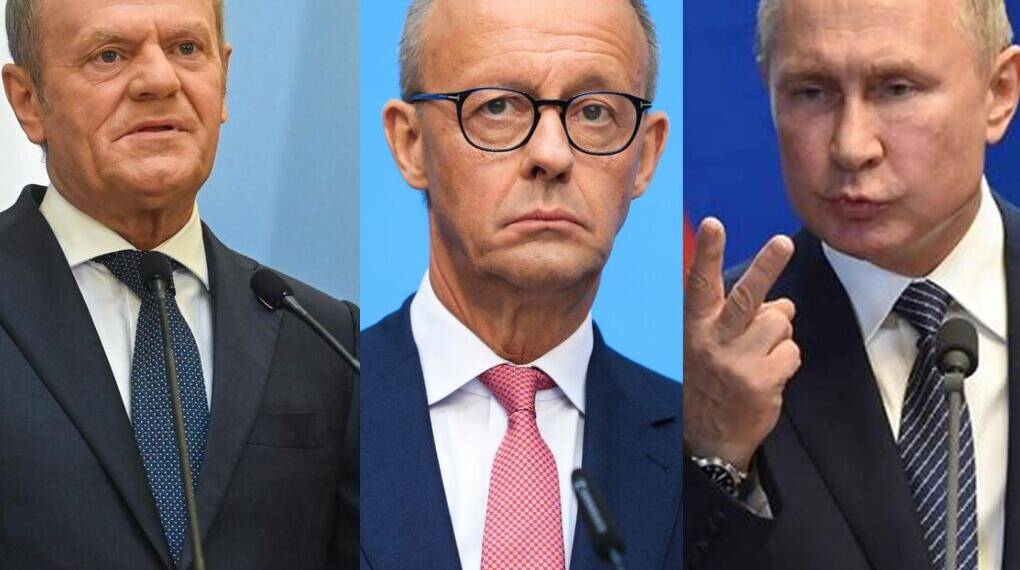Poland’s recent decision not to extradite a Ukrainian suspect in the 2022 Nord Stream pipeline sabotage case to Germany has intensified political discussions across Europe. Polish Prime Minister Donald Tusk stated that handing over the suspect, identified in media reports as Volodymyr Zhuravlyov, a Ukrainian diving instructor, “is not in Poland’s interests.”
He added that the underlying issue, in his view, was not the destruction of the pipelines but their construction, a remark that highlights the broader geopolitical context surrounding Europe’s energy infrastructure.
The Nord Stream pipelines — Nord Stream 1 and Nord Stream 2 — are twin undersea gas pipelines extending over 1,200 kilometers from Russia to Germany via the Baltic Sea. While these projects were promoted as a means of providing stable energy supplies to Europe, they were also controversial.
Poland and the Baltic states expressed concerns that bypassing traditional transit countries, such as Ukraine and Poland, would reduce regional leverage and increase dependence on Russian gas. Germany, under then-Chancellor Angela Merkel, defended the projects as essential for energy security and economic stability.
On September 26, 2022, a series of explosions damaged three of the four Nord Stream pipelines in international waters near Denmark’s Bornholm Island. The blasts released significant amounts of methane and rendered the pipelines inoperable.
Initial speculation about responsibility varied widely, with early reports suggesting possible Russian involvement, while others proposed that non-state actors or third parties could have carried out the sabotage. German investigators later identified a small group of individuals, including Ukrainian nationals, who allegedly rented a yacht and planted explosives. The investigation pointed to Zhuravlyov as a key suspect, though he denies involvement.
Poland’s refusal to extradite the suspect reflects both legal and political considerations. Under European Union law, an arrest warrant issued by one member state generally obliges other member states to cooperate.
However, exceptions exist in cases where extradition may conflict with national interests or security concerns. Warsaw has emphasized that the decision is consistent with its assessment of broader national and regional priorities, particularly in relation to Ukraine and ongoing regional tensions.
The case also highlights the economic and political repercussions of the Nord Stream disruption. Before the explosions, Russia supplied roughly 40 percent of the European Union’s natural gas. Following the pipeline damage and subsequent reductions in Russian energy exports, European gas prices increased substantially, contributing to inflation and rising energy costs for households and industry.
Europe has since diversified its energy sources, increasing imports of liquefied natural gas from the United States and the Gulf states, while Russia expanded its energy exports to Asian markets, including China and India.
From a geopolitical perspective, the incident has intensified scrutiny of alliances and decision-making within the EU and NATO. While Berlin has emphasized legal accountability and the importance of adhering to European judicial processes, Warsaw has prioritized strategic considerations related to regional security and support for Ukraine.
The differing approaches illustrate the complexity of balancing legal frameworks, diplomatic relations, and national interests in an increasingly interconnected energy and security environment.
Public and media reactions across Europe have been varied. In Poland and among Ukrainian supporters, Tusk’s stance has been seen as protective of regional security and solidarity with Kyiv. In Germany, there is concern that non-cooperation may undermine intra-EU trust and complicate ongoing judicial processes. Analysts suggest that the broader consequences of the case extend beyond individual accountability, touching on energy policy, EU cohesion, and the dynamics of European-Russian relations.
In conclusion, Poland’s decision not to extradite a Ukrainian suspect in the Nord Stream case underscores the intersection of law, politics, and energy security in Europe. While the pipelines were intended to provide economic and energy benefits, their destruction and the surrounding legal disputes highlight the challenges of navigating geopolitical tensions, national interests, and regional alliances.
As investigations continue, the Nord Stream case remains a focal point for discussions on European unity, energy strategy, and international cooperation in a rapidly evolving security environment.








